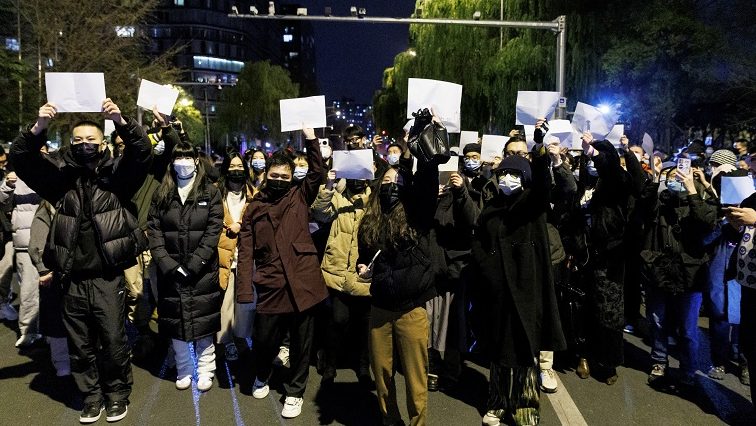Businesses in South Africa have raised concerns about the impact of the latest Zero Covid policy in China, on the supply chain.
Local businesses say imports from China have not fully recovered since the outbreak of Covid-19.
The latest restrictions saw thousands of people taking to the streets this week, against the government’s policy to curb the spread of Covid-19.
VIDEO: Anger mounts over China’s Covid-19 curbs: Thembisa Fakude
China is the world’s biggest manufacturing nation, with companies in South Africa saying supply chains remain disrupted due to the government’s clampdown on movement to curb the spread of Covid-19.
The Johannesburg Chamber of Commerce and Industry (JCCI) says the impact is being felt in industries across the board with negative consequences for the local economy.
“China is responsible for so much of the products we consume. Inputs in our own manufacturing, sale and imports, all of the unrest does make it difficult for companies to operate. They are struggling as it is difficult to get the container ships to South Africa,” says JCCI Vice President Duncan Bonnet.
China is the world’s second-largest economy. The Zero Covid policy, accompanied by protests, is presenting a new element of uncertainty and instability to the global economy amid the ongoing Russia-Ukraine War.
“Perhaps this is not going to be the last pandemic. Nobody knows. We’ve seen disruptions from the war in Ukraine. As the world becomes interconnected and those supplies influence each other. Here in SA and across Southern Africa, we do need to take cognisance for the last 3 years and we need to look after ourselves by developing our own supply chains,” says Bonnet.
Local companies have had to be innovative to cushion their businesses against the impact of persistent supply chain disruptions to avoid closing shops.
“A lot of global sourcing has moved from just in time to just in case, they are stockpiling their inputs so that manufacturing processes become predictable and they are not caught off guard, that’s part of it. It does give an opportunity to look close to home to see where you can source inputs from home. in terms of mitigation of you are reliant on China it’s time to relook into manufacturing to mitigate the effects of the protest in China,” Bonnet explains.
The Chamber says in the long term, there is a need to strengthen intra-regional African trade supply value chains that will ensure active means of production amid global disruptions. Businesses have also been encouraged to be agile and innovative in a bid to stay afloat in challenging times.
VIDEO: Situation calm in China after protests erupted against the zero COVID-19


